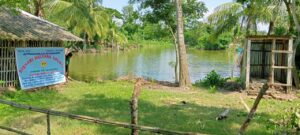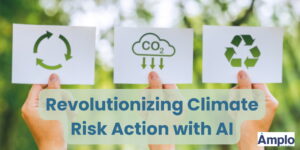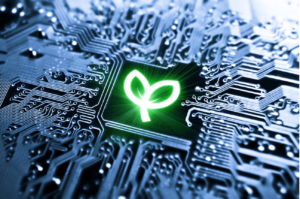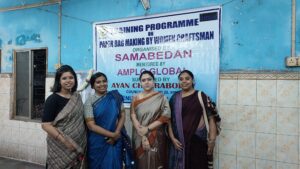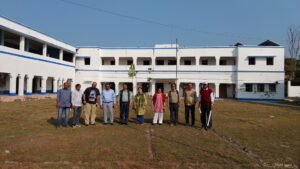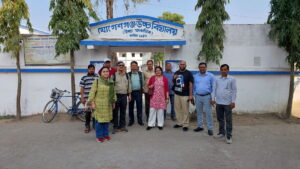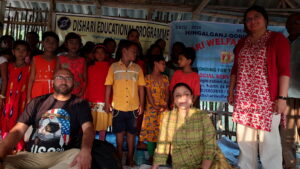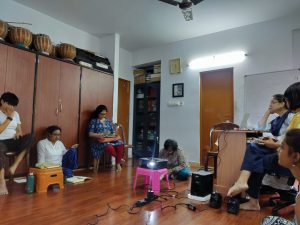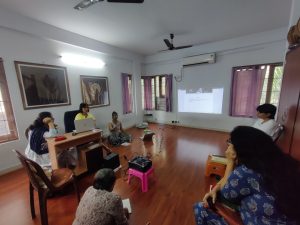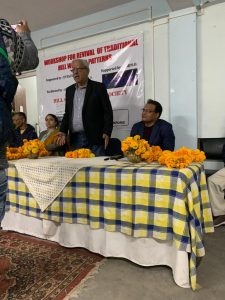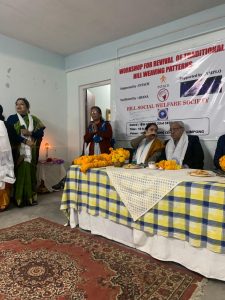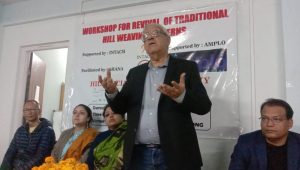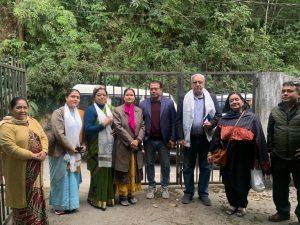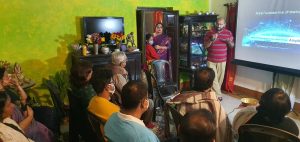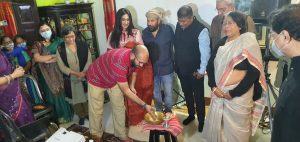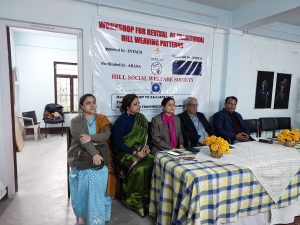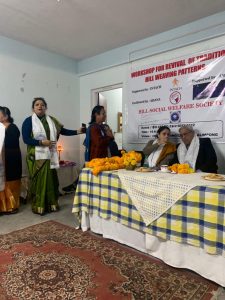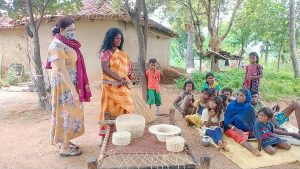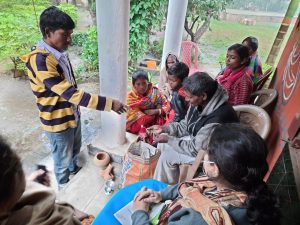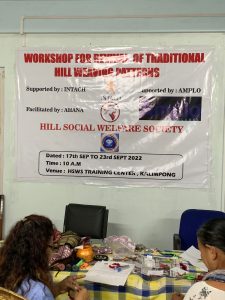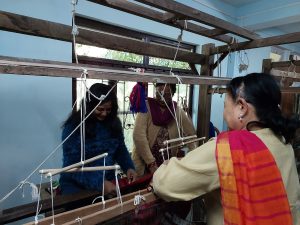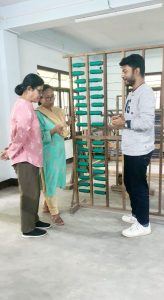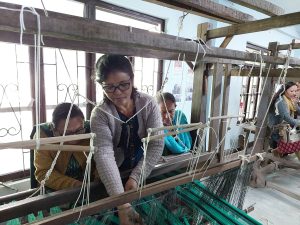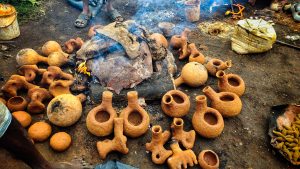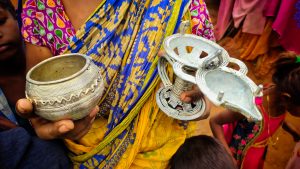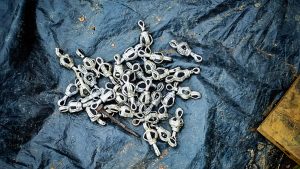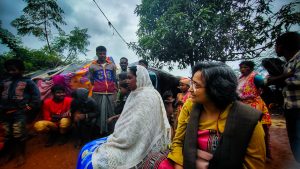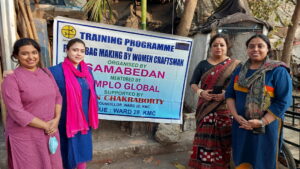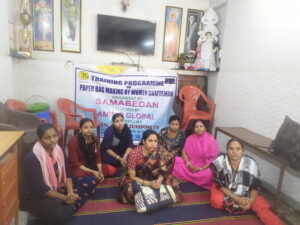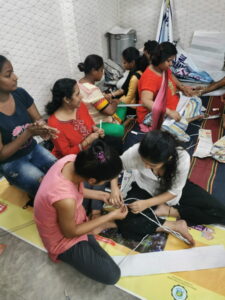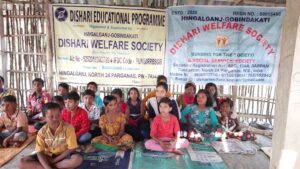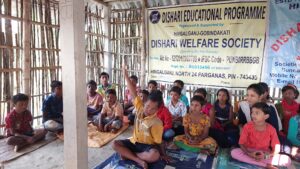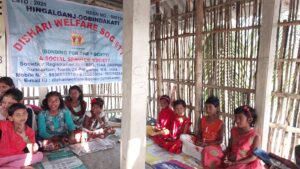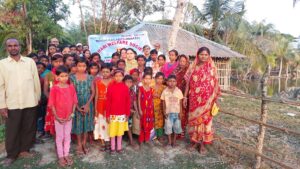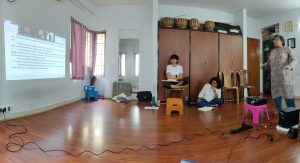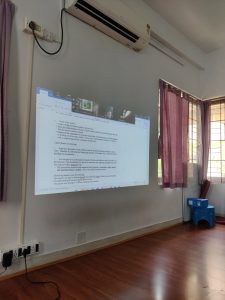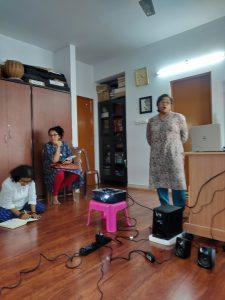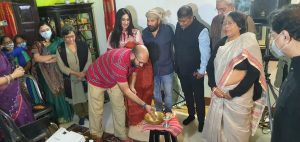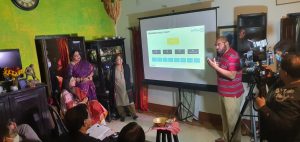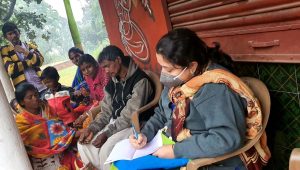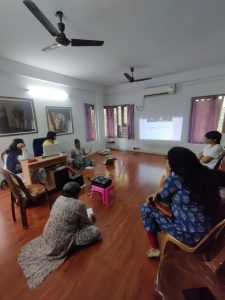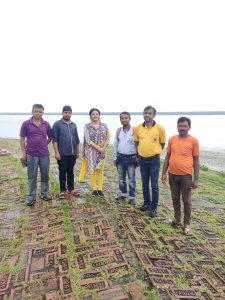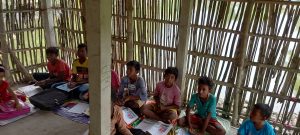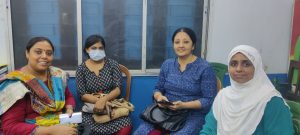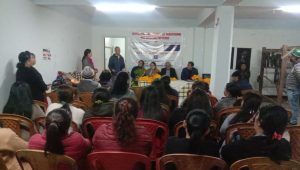A 14-member team of sherpas appointed by the Nepalese government returns after gathering over 3 tonnes of waste from the world’s most coveted peak. The news makes headlines in all leading newspapers. The 45 days “Mt. Everest Clean-up Campaign – 2019’ aimed to bring down over 10 metric tonnes of waste in used oxygen bottles, discarded climbing equipment, cans, and plastic debris from as far as Camp 3 of the world’s highest peak at the cost of approximately 23 million Nepalese rupees. A combination of irresponsible behavior, remote terrain, and a lack of governing rules and regulations had led to the world’s highest mountain earning the name of “world’s highest garbage dump”. This campaign was an organized effort by the Nepal government to revive the sanctity of the mountain.
The same month, a few local newspapers in India reported another waste management disaster. Over 2,000 metric tonnes of unsegregated waste had been dumped in a non-operational waste treatment plant in the village of Baswar, 15 Kms from Prayagraj (formerly Allahabad). The 2-months long Prayagraj Ardh Kumbh Mela had just concluded in March. Over 120 million Hindu devotees had congregated at the confluence of the river Ganga and Yamuna on this highly revered occasion, while a substantial number camped on the banks for 50 days. The event generated a humungous 18,000 metric tonnes of solid waste. Alarmed at the situation, the National Green Tribunal directed immediate actions to prevent the spread of an epidemic.
These stories of waste management calamities, whether at the world’s highest mountain or at the world’s largest religious gathering, aren’t isolated. These incidents are examples of everyday occurrences that became newsworthy due to their sheer numbers.
Management of solid waste is one of the biggest issues affecting the modern world. For developing countries like India, where a growing economy has triggered rapid urbanization, sending a burgeoning population flocking to its cities, the urban local bodies with their limited resources and fumbling governance, fail to keep up with the increasing demands. The situation gets even worse in tourist towns.
Most of India’s hill stations had once started life as tranquil sanctuaries set amidst nature for visitors to replenish and recover. It is this attractiveness that has now turned into the reason for their woe. Most of these tourist destinations aren’t easily accessible. Neither do they have the necessary infrastructure to deal with the additional numbers.

A small piece of paradise
Sikkim is one of the smallest states in India nestled in the Himalayas of north-east India. It is a prime destination for nature lovers and adventurous souls alike. In 2021, as travel gradually picked up pace after the pandemic, the Ministry of Tourism reported the number of visitors to the state reaching 511,669. With an area of just over 7,000 square Km, the state is home to 671,720 inhabitants as per the latest estimate, and is one of the least densely populated states of India. It is a mountainous land reaching a height of 8,586m at the Kanchenjungha national park in the north.
The state is fortunate to have a governance that is ecologically sensitive.
Agriculture has been the mainstay of Sikkim and even now it is estimated that 80% of the rural population is involved either in farming or its allied sectors. In 2003, the then Chief Minister of Sikkim, Pawan Kumar Chamling identified the risks of the Green Revolution sweeping the country and took the bold resolution to return to the age-old traditional farming practices of the region. Banning the use of chemical fertilizers and pesticides, with severe fines levied for breaches, Sikkim was set to transform into a fully organic state. The efforts paid off and in January 2016 Sikkim was declared a 100% organic state.
Since 1998 Sikkim has been fighting a second war, this time against single-use plastics. Despite imposing bans and restrictions, it has struggled to overcome the convenience brought about by plastic carry bags and packaged water bottles.
Plastic takes years to degenerate, only to become the tiniest particles of microplastics in our water bodies, which are then ingested by marine life and embed themselves into every living being and natural resource. Due to the harm they bring, the issue of plastic has been the topmost agenda at the United Nation’s 73rd General Assembly session held in 2018.

In 2021, the Sikkim State Pollution Control Board issued a ban on all single-use plastic effective from the start of 2022. The use, manufacture, import, and sale of plastic water bottles of capacity 2 liters and below was banned. Distribution of packaged drinking water bottles and Styrofoam cutleries during government meetings was stopped. It was an ambitious effort for a noble cause, but for Sikkim, it wasn’t unfamiliar territory.
A community unites
In north Sikkim stands the hamlet of Lachen, a small village comprising of about 300 households, a few hotels, and homestays. It is the gateway to the pristine Gurudongmar lake set in the high altitudes of the mountains at 5,813m. The village receives over 15,000 visitors each year, a number continuously growing with better facilities, communication, and ever-increasing popularity.
Back in 2006, concerned about the trash left behind by the tourists, a group of local youths got together and formed the Lachen Tourism Development Committee (LTDC), but their efforts weren’t enough to fight the pollution. In 2012, LTDC eventually convinced the local governance, the Dzumsa, to ban all entry of packaged drinking water into the village and imposed a hefty fine for any violations.
The village is now moving towards a zero-waste tourism destination where visitors are expected to carry their waste back, and anything left behind is segregated and recycled by the community. The success story of Lachen followed in the popular village of Lachung and through the rest of North Sikkim, a story Sikkim wanted to replicate throughout the state.
The challenge
Trying to bring the vision to its capital city Gangtok, Sikkim has bigger hurdles to face due to its size and a larger population comprising both locals and visitors. Yet, it has pulled off the biggest challenge of waste management – waste segregation – accomplished through the cooperation of its residents and encouraged by government policies. Composting of bio-degradable waste at home is encouraged and supported. There are hefty fines for littering, and even the odd tourist is charged for violation.
But for a state that thrives on tourism, ensuring the balance is perhaps the biggest dilemma, so as not to antagonize its main source of income. Packaged drinking water could not be entirely eliminated, given the inadequate resource to support such a rapidly growing population. Gangtok has had an explosive increase in its numbers, from 29,354 inhabitants in 2001 to 100,286 according to the 2011 census, and now estimated to be around 136,000. Its built-up area has grown from 50.08% in 2005 to 63.38% in 2021. Add to that the increasing tourist numbers and a city built on a fragile ecosystem struggling to keep up.
The example of Sikkim shows the challenge faced by every tourist location; managing its limited resources against the ever-increasing number of visitors and a growing hospitality industry to support them.
United Nations Sustainable Development Goals (UNSDG)
In 2015, United Nations prioritized 17 goals to be fulfilled by 2030 covering three dimensions – economy, social, and environmental, with the ultimate goal to eliminate poverty through sustainable development. The need for a clean environment, sustainable cities, and responsible behavior from both consumers and producers feature prominently on the list, encouraging a worldwide push towards sustainable living.
Stories of achievements in sustainable living from places like Sikkim give us the much-needed learning and hope that with the right approach, communities and the governing bodies can work together and bring through a change that may seem impossible at first sight. On the other hand, the challenges they have faced, also demonstrate the need for something more structured, more focused that will supplement their efforts.
How technology can help
The problem we have at hand is massive. While the conviction among the masses to see a better world is the first step towards a sustainable future, to achieve these goals in a defined timeline, our eco-warriors can benefit from the use of technology. Building and managing a sustainable yet effective value chain that helps achieve their set targets, is the biggest challenge such entities grapple with. It is time to rely on the best that science and technology have to offer.
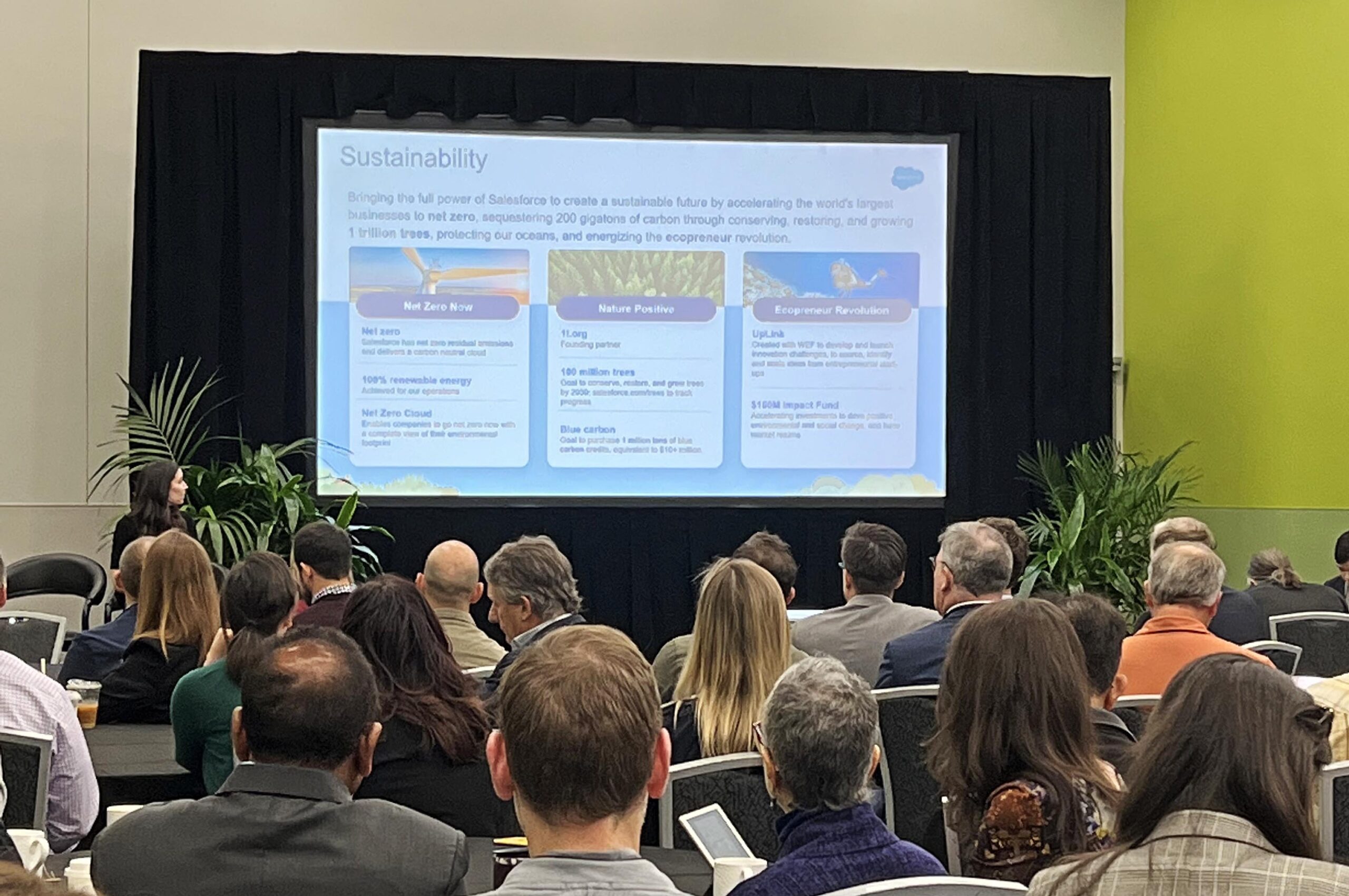
Data is key for leading any type of change, to even start appreciating the level of the problem. Unfortunately, in the social sector, data tends to be disorganized and limited, and sometimes, even tainted. It requires the skill, experience, and resourcefulness of experts in the field to make sense of the seemingly impossible.
Organizations skilled in risk management, like Amplo Global Inc, with their AI-powered tools that adapt and evolve with the problem, are the true game changers. Starting with acquiring the data, defining contextualized KPIs, and finally, presenting it in easily digestible visualization help organizations to uniquely identify the gaps in areas of environmental, social, and governance impact. It helps them to come up with specific goals, and make informed decisions on the next step while keeping their vision and challenges in focus. The outcome is a sustainable value chain created by the community, and empowered by technology.
Modern problems need modern solutions. With the best in such AI-based risk management tools, Amplo Global aims to bring UN’s 2030 SDG vision to life, through partnerships and collaborations with those in pursuit of a better tomorrow for all. A clean and green planet is the responsibility of every inhabitant of planet Earth. All we need are trailblazers who can show us the way.



